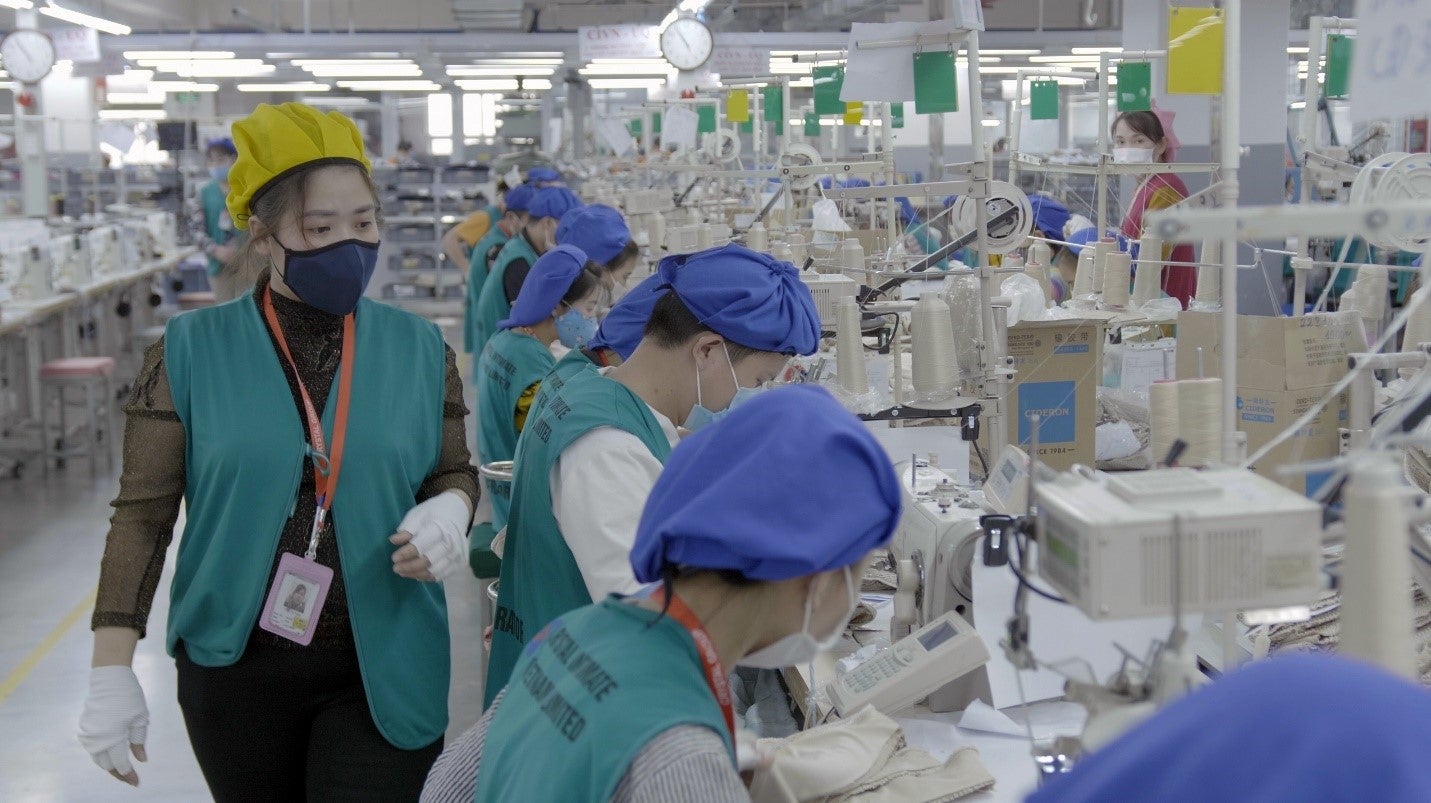 In her new role, Than Thi Thuy supervises and trains 27 sewing operators. © Better Work
In her new role, Than Thi Thuy supervises and trains 27 sewing operators. © Better Work
A training program combining technical knowledge, leadership development and on-the-job practice is boosting women’s careers and business performance in Vietnam.
Than Thi Thuy had been sewing clothes in a Vietnamese factory for two years, before her manager considered her for a supervisor position. “I was confident with my sewing skills but not enough with myself and my management skills,” Thuy says. After acquiring new technical and leadership competencies through a training program for promising women garment workers, Thuy’s career has taken off. “Now, I manage 27 workers on a sewing line. I train workers so that each line member can handle at least two processes, I reduce bottlenecks and improve their skills,” she said after her promotion.
In Vietnam, where women represent more than 80 percent of the garment industry’s workforce, evolving from sewing operator to supervisor represents an opportunity for many women to advance in their careers. However, such progression is not straightforward. It’s a major step that requires experience, technical knowledge and other abilities, such as leadership skills, assertive communication, and confidence.
Across ten garment factories in Vietnam, workers like Than Thi Thuy have benefited from the Gender Equality and Returns (GEAR) training program, which has equipped female sewing operators with the technical and soft skills necessary to fulfil supervisory roles. GEAR – an initiative of Better Work, a partnership between IFC and the UN’s International Labor Organization – started in Bangladesh in 2016 and was adapted for Vietnam in 2019.
The women supervisor trainees attended classroom training covering topics such as production management, efficiency measurement, workplace management, and quality control. To embed the classroom learning, participants then practiced in their workplaces and received monthly coaching sessions to refine their skills.
The training is bearing fruit. Despite COVID-19, eight of the ten factories have increased the efficiency rate across the lines supervised by GEAR trainees, from 74 percent (pre-training) to 83 percent (by the end of the coaching sessions) on average. Furthermore, seven factories have recorded lower defect rates.
Among the 30 aspiring supervisors who completed the GEAR program, 22 have been promoted to supervisory or other higher-level positions shortly after the training, boosting their incomes and career prospects. In addition, 21 existing supervisors – both junior and experienced – benefited from GEAR to deepen their knowledge and learn new management techniques.
“I can manage the line well and logically. I know how to achieve line balancing, solve bottlenecks, match the right people to the right job, manage workers’ absences, support other teams, to reduce the defect rate and increase line-level productivity,” says Pham Hong Thai Thao, another successful GEAR trainee.
Importantly, GEAR trainees are more confident in their ability to make decisions and communicate effectively. These skills have been especially relevant during COVID-19. Garment factories globally are experiencing profound disruption during the pandemic. When some factories repurposed part of their production to produce personal protective equipment (PPE) to stay afloat, the flexibility and newly acquired skills of the GEAR-trained supervisors contributed to their ability to quickly adjust.
Most of the factories will continue to embed some of the GEAR methods into their operations, for instance using the Japanese Kaizen approach of continuous improvement to identify areas to improve, implement solutions, and measure the gains.
By the middle of 2020, GEAR in Vietnam has been integrated as part of Better Work’s regular training offering and has already expanded to another five factories in Vietnam. Throughout 2021, GEAR will train 30 more women in Vietnam, across ten additional factories. Meanwhile, GEAR continues scaling up in Bangladesh, where the program will have reached almost 80 factories by the end of 2022, creating more opportunities for hundreds of women like Than Thi Thuy.
The adaptation and delivery of GEAR in ten garment factories in Vietnam has been implemented in partnership with the Government of Japan. This project has been conducted by IFC in close collaboration with Better Work Vietnam and Kim Dang Consulting.


Join the Conversation